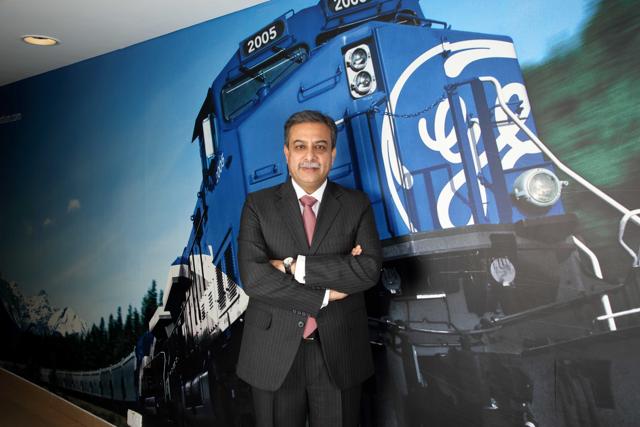How GE is turning its back on politeness without being rude
Banmali Agarwala came five years ago from Tata Power. He has come so far since then that he calls his Tata stint “ancient history”. That is how much GE has changed, as it now strives to become a bit more of an information technology and digital company, investing $1 billion in those areas every year.
The question was irresistible. Banmali Agarwala, the head of General Electric for South Asia, was talking about the new culture coming up at the company. It wants its people to cut through the maze of politeness to deliver their messages directly.

It was a wet morning and Agarwala had taken an hour and a half to come from Gurgaon to the Taj Mahal hotel, near India Gate in New Delhi. The Chambers, where the meeting took place, was nearly empty. It was safe to slip in the question.
What if Agarwala thought his people had got a complete moron to interview him that morning? How would he have told them that earlier, and how would he do that now, under the new culture?
“When I had just joined, with my Tata hangover, I would have taken 15 minutes to convey it, maybe over a cup of tea or coffee, and she may or may not have got the message. Now I would just say, ‘This was a total waste of time. You need to do your homework better.’ More direct. I will also give her a feedback on the smartphone tool.”
Agarwala came five years ago from Tata Power. He has come so far since then that he calls his Tata stint “ancient history”. That is how much GE has changed, as it now strives to become a bit more of an information technology and digital company, investing $1 billion in those areas every year.
With that its demography has changed. The company now has many more young people who dress and speak very differently from the impeccably groomed Agarwala, whose control over his voice never falters, not even when he calls himself “an old fogy”.
That he is not. Sure, Agarwala is 53 this year, a mechanical engineer by training, and in love with GE’s big aircraft engines and heavy machinery. But he shows an easy, good-humoured acceptance of the new culture being driven by Jeff Immelt, GE’s global CEO. Immelt recently held a conference with 500 of his top executives in the world, nine from India, and told them to do away with the old-fashioned politeness.
“The intent of that,” says Agarwala, “is not that you get rude, but that you do not lose time beating around the bush because you want to be polite and nice, because you don’t want to take issue with, confront, or displease the person.” Immelt favours conflict, the constructive kind.
The new belief is that constructive conflict gets you better ideas. If you are just being nice to each other and using nice words, you will have a yes-man or yes-woman family. “I have seldom seen a company of our size — $130 billion — change so much. But you cannot adopt a new strategy without changing your culture,” says Agarwala.
In fact, changing the culture takes more time than changing strategies. You can change your strategy by buying or selling companies, but changing the culture takes time. “But what takes years, we want to change in quarters. We are out on a mission,” he says.
Last year the company jettisoned the old system of annual appraisals. There is no more rating and grading people once a year, for which both the sides come well-prepared and well-dressed. Now there is a performance development tool and the process is continuous. “It is not for appraisal, but for development,” says Agarwala. Feedback is given in real time on a smartphone tool everyone has.
Priorities are set for every quarter and every year. Periodically, the managers and their reports sit together to see the work done and set new priorities.
Don’t people hate to be constantly under assessment?
“By and large, people are positive,” says Agarwala. “We are not being judgmental, and people love it.”
Isn’t there a fine line between giving insight and being judgmental?
“Yes,” says Agarwala, “we have trained people, not in how to give feedback, but in the intent of this exercise. It is not to judge, but to develop.”
Those joining the company are put on this system from Day 1. Of course, it is much easier for most of them. Given the company’s thrust on software and IT, many of them have a modern, open mindset. They are candid with one another, and comfortable giving feedback on the smartphone. It comes naturally to them. The company just has to make sure it does not curb that free spirit.
“It is easier,” says Agarwala, “to deal with the younger lot than, say, someone who has spent 25 to 30 years doing things in a particular way.”
That it may be, but not everyone who has spent 25 to 30 years is an old fogy.





